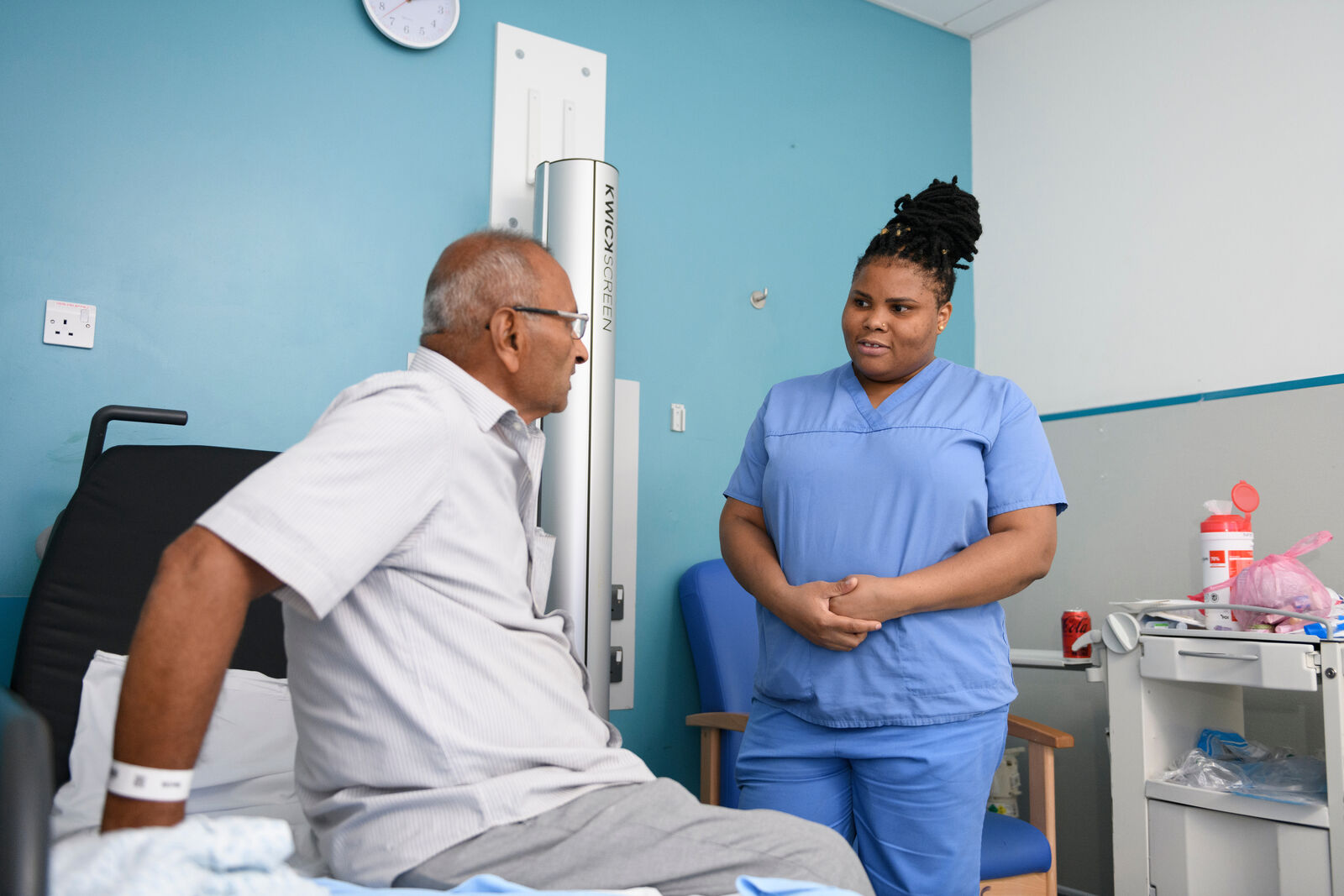Barts Health patient is 10th person to take part in pioneering clinical trial

A Barts Health patient is testing a pioneering genetic treatment to reduce the risk of heart attack or stroke among people of Pakistani and Bangladeshi heritage. The treatment lowers abnormally high cholesterol levels by repairing a fault in a gene, that prevents the removal of “bad” cholesterol (LDL) from the blood.
The patient is only the tenth in the world to receive this treatment through a clinical trial, but his involvement is significant because high levels of ‘bad’ cholesterol are common among people of South Asian descent.
He was diagnosed by the Genes & Health programme run in conjunction with Queen Mary University of London, and referred to the Barts Heart Centre at St Bartholomew’s hospital. The trial treatment, VERVE-101, is being developed with a US company, Verve Therapeutics, and initial results announced at the American Association over the weekend.
The patient said: “Heart attacks run in my family, which is why I decided to participate in the heart-1 clinical trial...I was afraid that I would be next. That was my motivation for being one of the first in the world to try VERVE-101. While I was only treated a few weeks ago, I’m very optimistic that the medicine will work, and I won’t have to worry about having a heart attack.”
Dr Riyaz Patel, who runs a clinic at St Bartholomew’s, said: “He had the treatment a few weeks ago and is doing very well. It’s a once in a lifetime treatment, with a single infusion, that essentially involves precision genetic editing so that the PCSK9 gene is permanently “switched off” and LDL falls by about 50%. If this approach works, I genuinely believe it will revolutionise lipids and cardiovascular disease risk management.”
Familial hypercholesterolaemia, known as FH, is one of the most common genetic conditions, affecting around 1 in 300 people globally. However, fewer than 10% will ever receive a diagnosis and most remain untreated. Without it, 50% of men will have a heart attack before they’re 50 and 30% of women by the age of 60.
Professor David van Heel, joint lead of Genes & Health said: “We are very proud to have a participant in this important clinical trial. These results coincide with the diagnosing and treating of our 50th volunteer with familial hypercholesterolemia. From the beginning we wanted to do something about the very high rates of heart disease in our volunteer communities, and it is amazing to be able to do so.”
Bangladeshi and Pakistani people have some of the highest rates of heart disease, diabetes and poor health in the UK, yet are underrepresented in genetic research. Testing for FH is a priority of the NHS Genomic Medicine Service so together, Genes & Health and the Barts Heart Centre, developed a pathway for research participants to receive a diagnosis and obtain treatment early.
If you want to join over 56,000 people who have already joined Genes & Health, visit the website .
